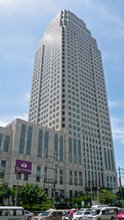
The Four Seasons Hotel Bangkok expects its occupancy rate to edge down to 50% this year, from 55% in 2008, with the combined impact of local political instability and the global downturn.
The five-star hotel estimates that the airport closures last year reduced its occupancy in 2008 from at least 70% to only 55%.
An increase in tourists between February and early April had been expected to improve this year's occupancy. But after the Songkran protests the hotel cut its projection to 50%, said Rainer Stampfer, regional vice-president and general manager of Four Seasons Hotel Bangkok.
"Actually, Thailand has high potential for tourism and should have done better without political problems," he said.
"Without political problems, we anticipate that Bangkok should witness a mild impact from the bad economy because we offer a better business environment than China, Hong Kong and Singapore."
The general manager is pessimistic about a full recovery for tourism by the year-end.
He also believes 2010 is unlikely to be a great year for Thailand's hotels as other destinations are competing with great value and lower prices.
The meeting and incentive sector has also been hit hard by local political turmoil. Mr Stampfer sees Asian corporate groups as the worst affected market.
International corporations concerned about organising conventions and events here may shift to locations they consider safer, including Singapore, Kuala Lumpur, Hong Kong and Shanghai.
"This situation may continue until the beginning of next year because organisers need nine months to prepare for an event. Surely Singapore and Kuala Lumpur have benefited considerably from the trouble here," he said.
For example, cancellations from Koh Samui, Phuket and Chiang Mai last December went to Langkawi and Bali.
To counter these challenges, Four Seasons will launch more promotions and special packages - such as a free night's stay for three paid nights - to attract international and local tourists.
"We have reduced our staff from the level of nine months ago. In February and March, we survived with improving tourism. In April, that good work was destroyed. We have to see what May and June bring us. If we get on the road of recovery, then we won't have any layoffs," he said.
Thailand's worst-hit resort destination is Chiang Mai, which suffers from a room oversupply on top of economic and political problems, said Mr Stampfer.
He said the Tourism Authority of Thailand (TAT) and airlines should collaborate to promote and increase international direct flights, particularly from short-haul markets such as Japan, Dubai, Singapore and Hong Kong.
Source: Bangkok Post 5 May 2009


No comments:
Post a Comment